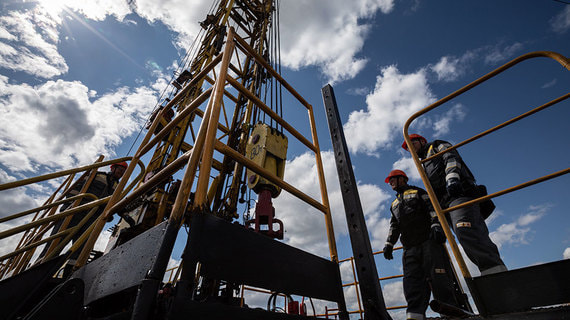The EU did not agree on a position on the marginal price of oil from Russia
[ad_1]

The EU ambassadors at today’s meeting failed to agree on a position on the marginal price for gas and oil from Russia, informed European Commissioner for Energy Kadri Simson.
“Yes, it is, the negotiations will continue,” she confirmed the failure of the first meeting of EU ambassadors to discuss the price ceiling for Russian oil (quoted by TASS).
The day before, November 23, Bloomberg reportedthat negotiations between the EU countries regarding the introduction of a price ceiling for Russian oil have reached an impasse, as the governments could not agree on the mechanism for the proposed restriction. In particular, the European Commission proposed a ceiling of $65 per barrel, but the Baltic countries and Poland rejected this figure, considering it too “generous”. At the same time, countries with a developed maritime transport and logistics infrastructure, such as Greece and Malta, opposed the introduction of a ceiling below $70 per barrel.
In addition, today the EU ambassadors will discuss the proposal of the European Commission on the price ceiling for the monthly gas futures on the TTF hub index at the level of 275 euros per MWh. According to the proposal, the mechanism will start automatically when two conditions are met. First, the price of gas exceeds 275 euros for two weeks. The second is if the TTF price is €58 above the LNG base price for 10 trading days. The press service of the EC writes that this mechanism can be activated from January 1, 2023.
After that, the Financial Times informedthat the EU countries are dissatisfied with the European Commission’s proposed restriction of prices for Russian gas at the level of 275 euros per MW / h, or about $ 2,800 per thousand cubic meters. m. In their opinion, such a ceiling is “too high.” In particular, in August, gas prices on the London ICE exchange soared above 300 euros per MWh after Nord Stream supplies were cut off, but they stayed at this level for only a week.
Against this proposal spoke representatives of the ICE exchange. According to them, if the price ceiling is approved, traders will incur losses of $33 billion, which they will have to pay in the form of margin payments.
According to the newspaper, the final decision on this issue should be expected no earlier than December 19, when the next meeting of EU energy ministers will take place.
Speaking at the forumRussian Energy Week» On October 12, Russian President Vladimir Putin once again stressed that energy supplies to those countries that approve the price ceiling would be cut off. Before that, he repeatedly said that the introduction of restrictions would lead to an increase in energy prices. During the Eastern Economic Forum (EEF), Putin said that the idea of imposing a price ceiling on energy resources is “nonsense and nonsense.”
Subscribe on “Vedomosti” in Telegram and stay up to date with the main news of the economy and business
[ad_2]
Source link








